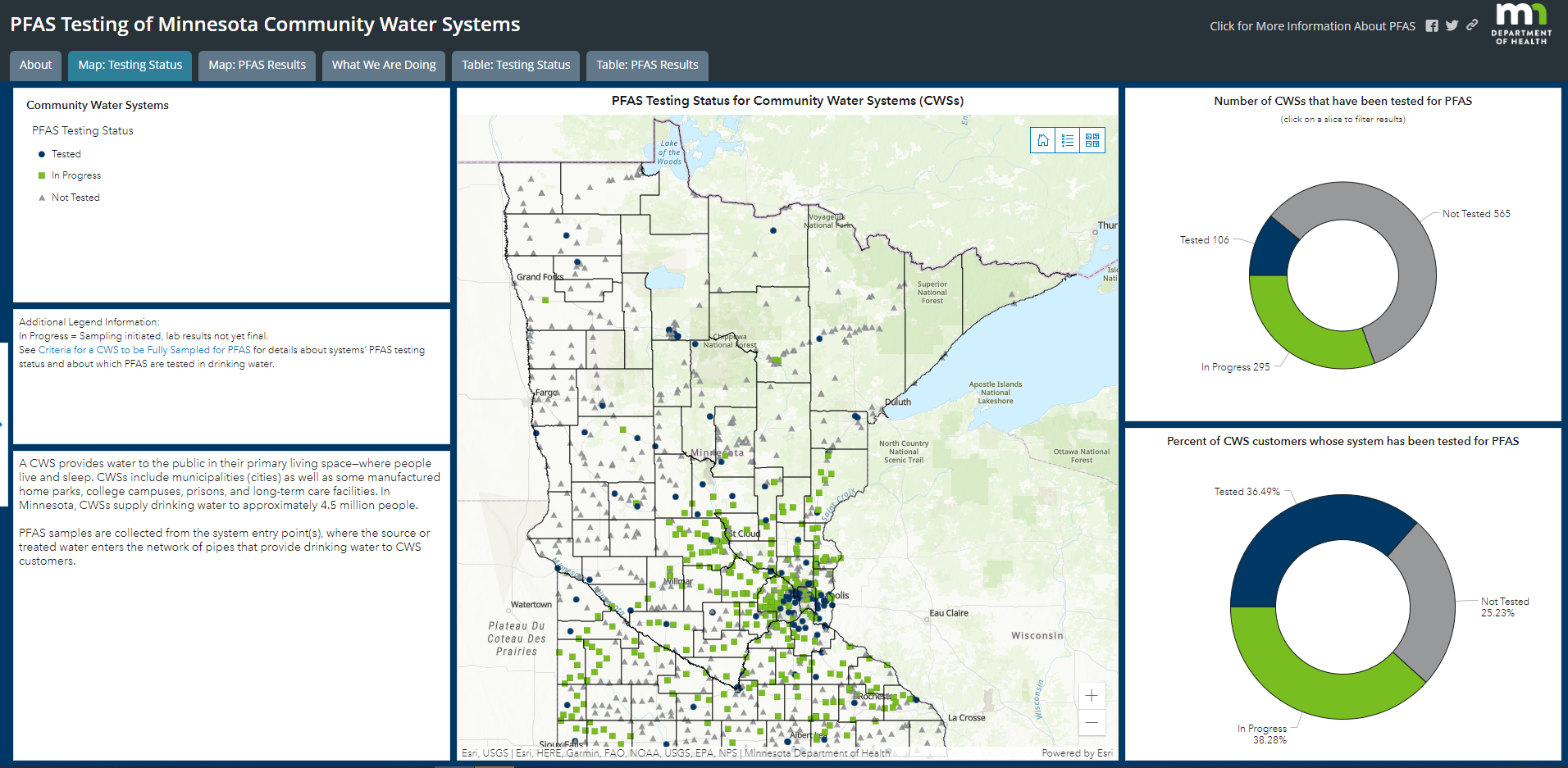Drinking Water Protection
- Drinking Water Protection Home
- About Us
- A-Z Index of Contaminants in Water
- Community Public Water Supply
- Drinking Water Grants and Loans
- Drinking Water Institute
- Drinking Water in Schools and Child Cares
- Drinking Water Revolving Fund
- Laws and Rules
- Noncommunity Public Water Supply
- Source Water Protection
- Water Operator and Certification Training
- Drinking Water Protection Contacts
Related Topics
- Annual Reports
- Drinking Water Risk Communication Toolkit
- Drinking Water Protection External Resources
- Fact Sheets
- Forms
- Invisible Heroes Videos: Minnesota's Drinking Water Providers
- Noncom Notes Newsletter
- Sample Collection Procedures (videos, pictures, written instructions)
- Waterline Newsletter
Related Sites
- 10 States Standards
- Clean Water Fund
- Health Risk Assessment – Guidance Values and Standards for Water
- Minnesota Well Index
- Water and Health
- Wells and Borings
Environmental Health Division
Drinking Water Protection
The Minnesota Department of Health (MDH) is the state authority for drinking water. Several programs at MDH work together to ensure safe and adequate drinking water. The Drinking Water Protection program focuses on public water systems. Public water systems serve 25 people or more in places where they live, work, gather, and play.
About Us
- About the Drinking Water Protection program, with links to program sites.
A-Z List of Contaminants in Water
- Information about contaminants that could be found in drinking water and sources of drinking water like groundwater, rivers, and lakes.
Bottled Water
- Questions and answers on bottled water versus tap water.
Drinking Water Annual Reports
- Drinking water protection annual reports by year.
Drinking Water Institute
- WaterWorks! A Drinking Water Institute for Educators is an annual institute for teachers to learn about drinking water and how to teach it in their classrooms.
Drinking Water in Schools and Child Cares
- Protecting drinking water quality in schools and child cares and educating teachers, parents, and students about drinking water.
Drinking Water Protection Laws and Rules
- Links to laws and rules pertaining to drinking water protection in Minnesota.
Drinking Water Revolving Fund
- Information about public drinking water supplies in Minnesota.
Fact Sheets
- Drinking water protection fact sheets and advisory guidance documents.
Home Water Treatment
- Overview of types of devices used to treat water and considerations for purchasing.
Invisible Heroes Videos
- Videos highlighting public water providers.
Lead and Copper Rule Revisions
- All things LEAD in Drinking Water - Information about the updated Lead and Copper Rule (LCRR) and its impacts to drinking water.
Plan Review
- Information about plan review of drinking water construction projects.
Risk Communication Toolkit
- Strategies and tools for communicating about drinking water.
Source Water Assessments
- Information about public drinking water systems in Minnesota.
Strategic Initiatives
- Information about strategic projects and initiatives.
Water Operator Certification and Training
- Exam information, training schedule, FAQs, and more.
Waterline Newsletter
- A quarterly publication for water operators and others as well as a list of feature stories about water systems.
Drinking Water Protection Contacts
- Contact information for Drinking Water Protection program staff.
Of interest
Interactive Dashboard for PFAS in Drinking Water
Last Updated: 08/14/2025

